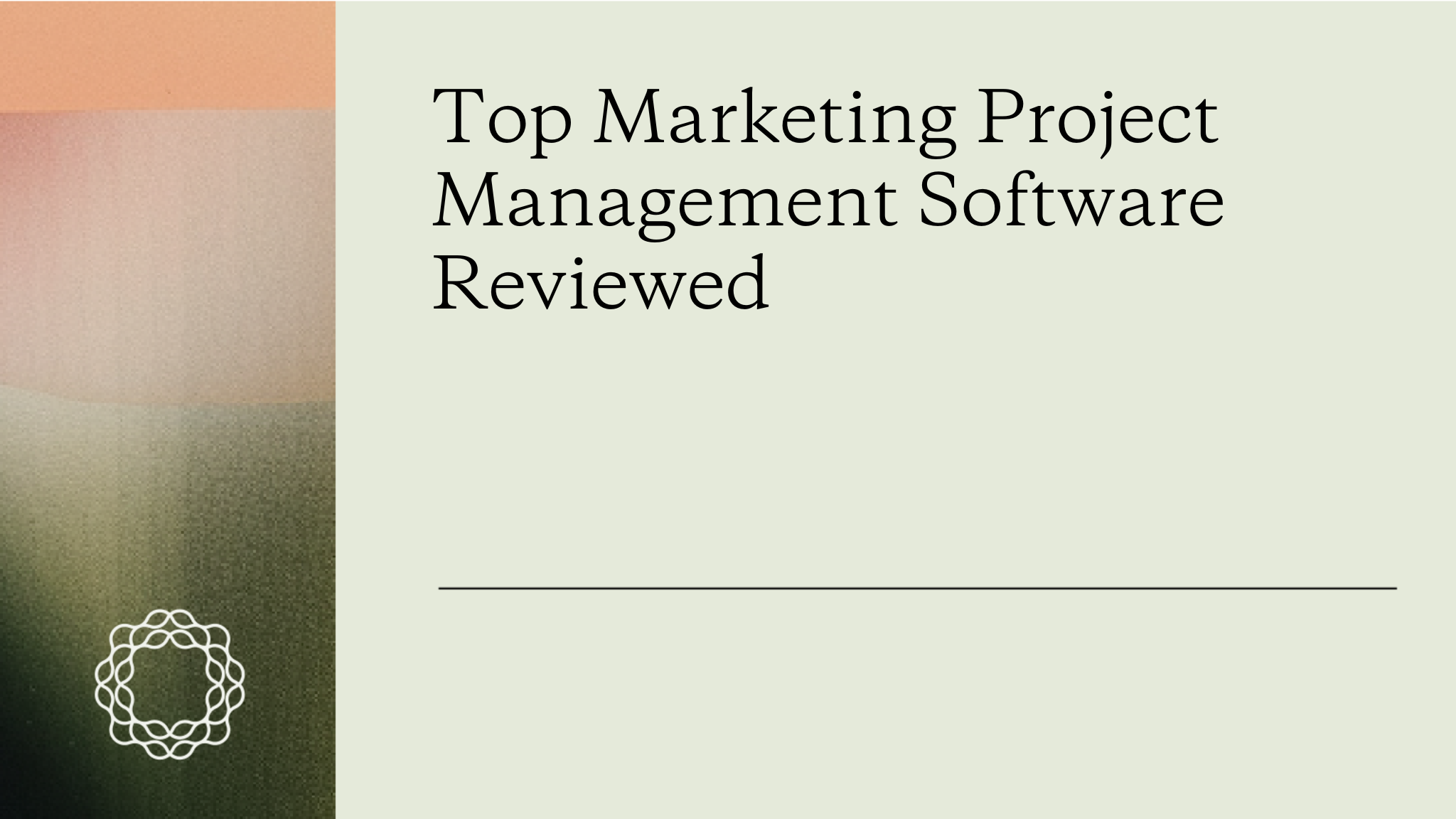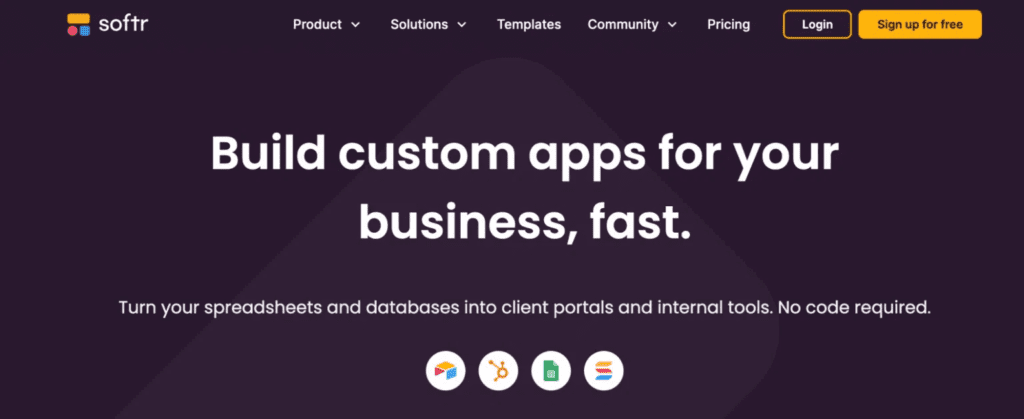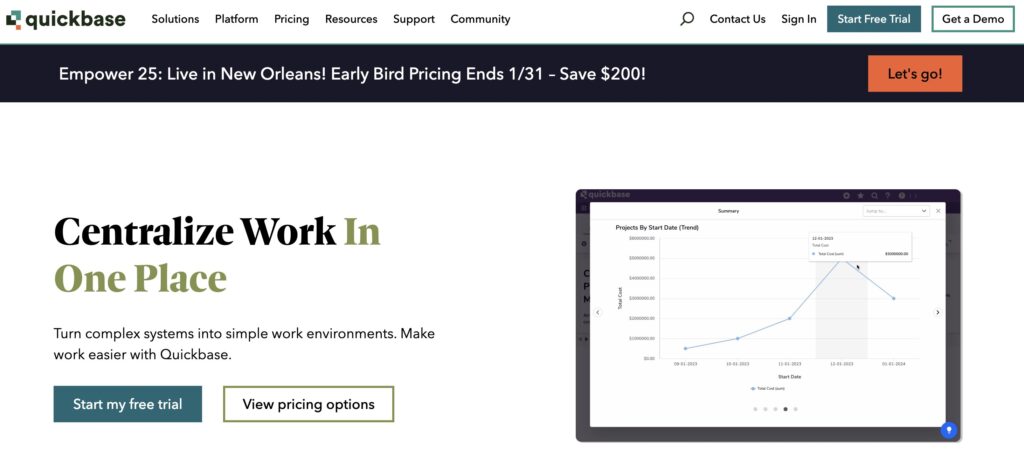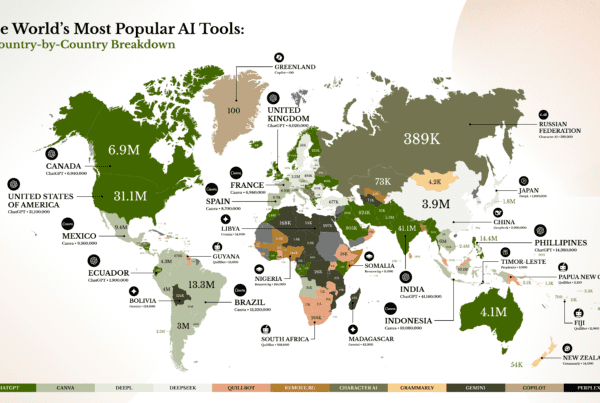
Project management software streamlines your business workflow and boosts productivity.
You can use it to plan and track projects, delegate work among team members, and improve team collaboration through functionalities like task and document management.
With so many project management software solutions available, finding the right one for your needs may take a while. To spare you the research, we’ll cover some of the best project management tools for marketing agencies currently available.
We’ll take a look at each platform’s key features and its pros and cons. But first, let’s dive a little deeper into what project management software is, how it can help your marketing campaigns, and what functionalities you should look for. One platform worth considering for streamlining your marketing projects is Jetpack Workflow, which offers robust features tailored for agencies and teams looking to stay organized and efficient.
What is marketing project management software?
Marketing project management tools help you plan, manage, and oversee marketing projects from beginning to end.
These platforms bring multiple marketing project-related tools under one roof—from built-in calendars that are useful for planning marketing campaigns, to document management and file-sharing capabilities where team members can store, access, and edit media assets.
Some advanced solutions even incorporate ETL pipeline functionalities, allowing for seamless data integration and transformation across various marketing tools and databases.
Through their task management capabilities, they also give you a granular overview of your projects. You can divide a project into multiple, smaller tasks, giving you a much more structured approach to completing your projects and effectively implementing B2B eCommerce marketing strategies.
Integrating these tools with a genuine e-commerce hosting solution can streamline operations and enhance scalability for e-commerce businesses running on platforms like Magento. For in-store applications, using a Magestore Magento native POS solution can keep your online and offline sales perfectly synchronized.
Digital vs. manual: how does marketing project management software improve workflows?
- Automated workflows: Streamline various parts of your workflow, like setting up recurring tasks and deadlines, or delegating work to teammates to save time.
- Campaign planning: Visualize marketing projects through multiple formats, like Kanban boards, Gantt charts, or list views, to handle project planning according to your specific needs.
- Reports and analytics: Gauge employee productivity and campaign ROI via team performance and budget reports. Some marketing project management software solutions also offer customizable reports so you can track metrics most relevant to you.
- Collaboration: Minimize communication errors and better collaborate with teammates through built-in task comments, chat, and file-sharing functionalities. You can even record videos to explain tasks visually, sparing you the need to rely on separate collaboration tools.
What to look for in marketing project management software
- Time tracking: Track the time teammates spend on specific tasks to identify time-consuming activities and organize future work accordingly. Track the time teammates spend on specific tasks using time tracking software like TimeCamp to identify time-consuming activities and organize future work accordingly.
- Resource management: See who works on what and when to prevent overworking employees and assign tasks across your organization evenly.
- Document management: Easily store, manage, and share project-related files to track and collaborate on media assets, including seamless integration with IT asset management, ensuring efficient teamwork.
- Multiple project views: Handle different parts of your marketing campaigns more effectively via a broad selection of project views. For instance, you could plan content under calendar views, while content production can follow a structured Jira workflow set up on Kanban boards—ideal for tracking progress and managing dependencies.
- File proofing: Streamline the review process by checking and approving media assets directly within your chosen project management solution. Leave feedback and see whether it was implemented via version control.
The 10 best project management software for marketing agencies
1. Planable
Planable is a content collaboration and approval software that allows you to work on any type of written content, like blogs, newsletters, social media posts, and more. The platform stands out through its top-of-the-line approval functionalities.
You can set up custom approval workflows specific to your needs. You can choose between four types of approval workflows: none, optional, required, and multi-level. Multi-level approvals ensure that your content goes through all the parties involved (like your content team, design team, and legal team) before the final sign-off, ensuring an in-depth review and social media approval process.
Planable also shines in terms of collaboration tools. The platform includes comments, text annotations, and suggestions, coupled with customizable notifications, internal notes (not visible to the client), and custom user roles.
One of the platform’s main strengths is ease of use. You can plan and schedule content via a drag-and-drop interface. Approving posts can be done with a single click directly within the calendar view—no need to access different dashboards.
While the platform supports collaboration on any content, the drawback is that Planable’s direct publishing and scheduling capabilities are currently limited to social media posts. Planable offers a free version, and paid plans start at $11 per user per month (billed annually).
2. HubSpot
Although primarily a Customer Relationships Management CRM, HubSpot also offers dedicated solutions for marketing, customer service, operations, content management, and eCommerce—which is ideal for companies seeking to unify numerous business activities.
HubSpot’s Marketing Hub includes all the features necessary to expand your online presence across multiple channels, including a built-in landing page builder, email marketing tools, A/B testing, and marketing automation functionalities.
The Marketing Hub also offers project management capabilities under its Campaigns feature—you can create a series of tasks for each marketing campaign and collaborate with team members through comments. You also get access to custom reports that reveal your campaign’s revenue, leads, and more.
Additionally, you can export data from HubSpot to analyze performance trends outside the platform or integrate with other analytics tools.
However, the Campaigns feature is only available from the Professional plan and up, which starts at $800 per month (billed annually).
3. ClickUp
ClickUp is an all-in-one productivity platform that stands out through its broad set of functionalities.
The software offers built-in time tracking features, while its collaboration tools include in-app recording, file proofing, built-in chats, and the ability to send out emails directly from within the platform. You can also hold live brainstorming sessions and work on ideas with teammates in real time via the platform’s Whiteboards.
Regarding project management, ClickUp allows you to create highly structured workflows by breaking down tasks into multiple subtasks. You can also set up dependencies for a thorough step-by-step process towards achieving your goals.
Other key features include a large variety of project views (calendar, Gantt, table, list views, etc.), resource management, and goal tracking. Most of the functionalities we mentioned are available with ClickUp’s free plan, while paid packages start at $7 per user per month (billed annually).
Although ClickUp shines through its versatility, it has a rather steep learning curve. It might take a while to get used to the platform, especially if you have no prior experience with project management solutions.
4. Asana
Asana is a project management tool suitable for medium and large organizations. Its free plan allows for up to 15 collaborators and includes key features like unlimited tasks and projects, as well as list, calendar, and board views.
Asana’s Business package also gives you access to Portfolios. You can group multiple projects together and easily visualize key details like status reports and track progress for each—which is perfect for complex projects where you have to keep an eye on multiple marketing campaigns at once.
Then there’s the platform’s Workflow Builder. This functionality allows you to set up custom automated workflows via a drag-and-drop interface. Asana also includes built-in file proofing, goal tracking, resource management, and the ability to collaborate with team members through comments.
However, scalability may be an issue. There are steep pricing differences between paid plans. The platform’s Premium plan costs $10.99 per user per month (billed annually), whereas its Business package costs $24.99 per user per month.
5. Monday
Monday Work Management is an excellent marketing project management tool for small teams looking for a scalable solution. The platform’s free plan is available for up to two users, while paid packages cost $8, $10, and $16 per user per month, respectively (billed annually).
Monday handles digital asset management and tracking, annotations on each file for feedback, and marketing campaign planning through Gantt charts. It also includes Whiteboard collaboration, which is perfect for brainstorming sessions.
Monday’s customization options are another standout. You get access to 200+ industry-specific project templates, which you can further modify according to your needs. For instance, Monday’s pre-built marketing dashboards cover anything from content and social media planners to event and budget management dashboards.
Monday.com’s entry-level plans are rather limited—they only give you access to Kanban boards and lack automation tools, a point to consider when comparing Asana vs Monday.
6. Notion
Notion is a project and document management platform ideal for handling content production. You can use Notion’s Wikis to set up knowledge bases and content guidelines, as well as store media assets.
Its Docs functionality is perfect for handling content outlines and creative briefs. You can also collaborate on documents in real-time through comments and notifications. You can add tables of contents and collapsible toggles to your documents to make them easier to go through.
Notion lets you turn each doc into a webpage, making it easily accessible to team members and other stakeholders.
As for project management features, you can create highly structured workflows via tasks, subtasks, dependencies, and task priorities. Notion’s calendar views are perfect for planning upcoming content, while you can use its list views to set up review and approval processes.
However, Notion doesn’t offer any built-in reporting and analytics capabilities. Pricing starts at $8 per user per month (billed annually) with a free plan included.
7. Wrike
Wrike is a versatile project management tool with advanced automation, proofing, and approval functionalities.
You can set up trigger-based automation workflows via When and Then sequences to eliminate repetitive work, like moving a project to the archive once it’s completed. Wrike also leverages AI to assess project progress and identify any risks that may lead to missed deadlines.
Wrike’s proofing functionality handles numerous file formats—be it PDFs, JPEGs, videos, and even web pages. You can easily leave suggestions under each file via comments. Most notably, the platform allows you to check media assets side-by-side to see whether feedback is implemented correctly.
The platform’s automatic notifications will instantly let approvers know whenever a document is ready for review. Other key features include resource planning, an AI-powered content generator, and built-in time tracking.
Despite its in-depth proofing and approval tools, Wrike lacks multi-level approvals, but you do have the option to invite external reviewers to the platform. The platform offers a free version, while paid plans start at $9.80 per user per month.
8. Softr

Softr is a no-code platform that enables users to build custom web applications, including marketing project management tools, without writing any code. It’s particularly suited for marketing teams looking to create tailored solutions for campaign tracking, task management, and team collaboration.
With Softr, users can leverage pre-built templates and a drag-and-drop interface to design applications that fit their specific needs. The platform supports integrations with data sources like Airtable, Google Sheets, Notion, SmartSuite, and Xano, allowing for dynamic data management. Features such as user authentication, role-based access control, and customizable workflows make it a versatile tool for managing marketing projects.
Softr offers a free plan that includes one published app and up to 10 app users. Paid plans start at $49 per month, providing additional features like multiple published apps, increased user limits, and advanced integrations. Higher-tier plans offer capabilities such as unlimited apps, advanced data source integrations, and enhanced security features.
While Softr excels in ease of use and rapid deployment, it may have limitations in advanced backend functionalities compared to more complex platforms. However, for marketing teams seeking a quick and customizable solution without the need for extensive development resources, Softr presents a compelling option.
9. Basecamp
Basecamp is a project management software solution that emphasizes collaboration. You can post announcements through the platform’s message boards, hold group chats via its Campfire functionality, and send one-on-one DMs. You can also set up automatic polls to see what your teammates are up to.
Basecamp also allows you to set up tasks through Kanban boards and to-do lists, while you can easily track project progress via its Hill Chart.
You can get an in-depth view of your projects by tracking each team member’s activity. Basecamp’s document management features allow you to store, share, and collaborate on files, documents, or images.
However, Basecamp lacks task dependencies and multi-level approvals. In terms of pricing, you can either use Basecamp for $15 per user per month, or for a flat fee of $299 per month for unlimited users (billed annually).
10. Quickbase

Quickbase is a powerful low-code platform designed for project management, workflow automation, and custom application building. It empowers users to streamline operations and improve collaboration through its highly customizable features.
Key Features
- No-Code Development: Build custom applications without coding expertise using drag-and-drop tools and pre-built templates.
- Project Management: Plan, track, and execute projects with tools for task management, milestone tracking, and real-time progress updates.
- Workflow Automation: Automate repetitive tasks with rules and triggers to improve efficiency.
- Data Integration: Seamlessly connect with third-party apps like Salesforce, Slack, and Outlook to synchronize data.
- Collaboration Tools: Enable real-time collaboration with role-based access control for secure data sharing.
- Reporting & Dashboards: Create customized reports and dashboards to visualize key metrics and gain actionable insights.
Pros
- Intuitive interface for easy application building.
- Highly flexible and customizable to meet unique business needs.
- Robust automation features save time on repetitive tasks.
- Extensive integration capabilities enhance functionality.
Cons
- Steep learning curve for users unfamiliar with database concepts.
- High subscription costs may be prohibitive for smaller organizations.
- Limited mobile app functionality compared to the web version.
Pricing
Quickbase offers tiered pricing plans:Team Plan: Starting at $30 per user/month (minimum 20 users).
- Business Plan: $50 per user/month (minimum 40 users).
- Enterprise Plan: Custom pricing tailored for large-scale needs.
Quickbase is ideal for organizations seeking a versatile platform to manage complex projects, automate workflows, and build custom solutions. While it may require some initial training, its robust features and scalability make it a valuable tool for businesses aiming to enhance efficiency and collaboration.
What is the difference between CRM and PM software?
A project management (PM) software solution helps improve team performance, minimize project challenges, and deliver projects on time. and deliver projects on time. It provides the tools necessary to manage resources and budgets, plan projects, automate recurring tasks, and collaborate with team members and external stakeholders.
In contrast, a Customer Relationships Management (CRM) solution helps you manage customer data and improve communication with potential prospects, as well as existing customers, to increase sales.
CRM software covers features like contact management, lead tracking and scoring, sales forecasting, or sales analytics.
Conclusion
There you have it—some of the best marketing project management tools you should. They help you create well-structured workflows, coordinate your team more effectively, and plan successful marketing campaigns.
Keep in mind that content is the center point of any marketing strategy. A well-planned campaign may not yield the desired results if your content is not up to standards. An organic growth agency like Omniscient Digital can help you grow your business by handling the content production process from beginning to end—from competitor research all the way to content promotion.


